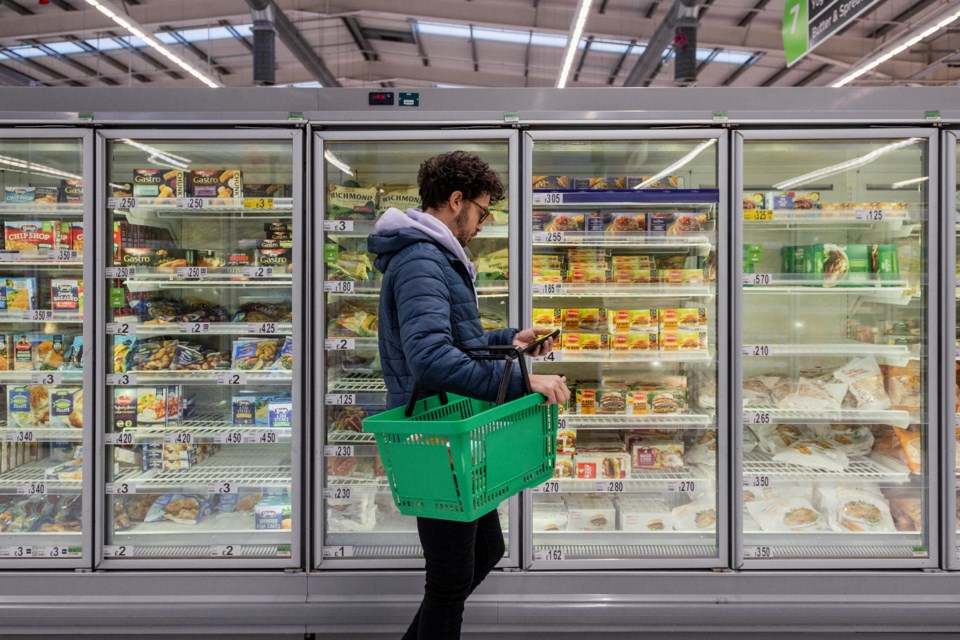As the inflation in Canada reaches a 31-year high, some Richmondites have turned to side hustles to bring in extra cash to cover the bills.
“Doing a side gig won’t earn you six figures a year, but the additional income can make life easier and help you pay off your credit card debt,” said Richmondite William Wang.
In addition to working a full-time job Monday to Friday, Wang said he needs to work as a personal grocery shopper on the weekends to feed his family of four.
With the annual inflation rate shooting up almost seven per cent, the highest since 1991, a study from the Angus Reid Institute found more than one-third (36 per cent) of Canadians surveyed said they are in a worse financial situation than they were a year ago.
While salaries have inched up in some sectors, they’re far from keeping pace with inflation.
To make ends meet, some people are resorting to everything from grocery shopping for others to standing in line at the passport office.
As a personal shopper for Instacart, an online grocery delivery platform that partners with most Canadian supermarkets, Wang said this side hustle could earn up to $180 per day over the weekend.
“My income mostly depends on tips. If I can get the shopping done quickly, happy clients are willing to give me more than $20 from a single order,” said Wang.
“I spent my whole weekend waiting outside of Costco in Richmond and once a client makes an order, I run in to get it done as soon as possible.”
However, the competition is tough with so many people entering the market during the pandemic.
“This is an entry-level job, so the market is competitive. It’s okay for the short-term, but it isn’t ideal from a long-term perspective,” said Wang, adding that he is looking for other gigs that can generate more profit.
Driving for a ride-hailing platform is another popular way to make some cash on the side.
“I usually start picking up clients around 5 p.m. when I finish my day job and wrap up around 9 p.m. I can earn $30 to $40 per hour,” said Richmond Kabu driver Kevin Wang.
“I particularly love the weekend since many people look for drivers around that time.”
Kevin said he also likes the flexibility of being a part-time driver.
“I can choose if I want to pick up the client or when to stop working. I always go for a ride after finishing work,” said Kevin.
The latest side hustle to hit the news is freelance line stander.
Due to a labour shortage and revived interest in travel, the Richmond Service Canada Office has been unable to process passports in a timely manner, leading to three- or four-hour lineups outside the building on Cooney Road.
The long queues have resulted in several ads popping up on Facebook Marketplace, Craigslist and Kijiji, promising to help travellers avoid queueing up for hours in the rain on end.
Rob Huang is one line stander who said for one job he earned $400. The catch was he had to be there at 2 a.m. and had to stand there for nine hours.
Currently, passport offices are creating the most demand for line standers, but the job itself is nothing new, according to local relator Beijing Liu.
In fact, Liu said she once paid more than $1,000 to hire people to sand in line for her when a pre-sale condo project first hit the market a couple of years ago.
“I needed to take care of three clients at the same time, and I couldn't line up for everyone. Therefore, I hired someone to hold one of the spots for me,” said Liu.
But while the side gig industry is helping people make ends meet, there’s a cost – both to the individual and society at large.
Both William Wang (Instacart) and Kevin Wang (Kabu) said they are issued a T4, meaning the government can track the income to ensure taxes are paid.
However, many of these jobs are paid in cash which many workers don’t declare, taking a bite out of the public purse.
The gig economy can also be hard on workers as the jobs are rarely secure or provide benefits. As well, the pay is generally lower and personal expenses, such as gas, aren’t covered, according to Corporate Finance Institute, an online training and education platform.
Add to that the mental health cost of working seven days a week for some.
But while it might not be ideal, William Wang said it’s what’s keeping his family from having to turn to the food bank.
Meanwhile, he’s thinking about switching to the passport line stander gig as it looks like it might pay more.



